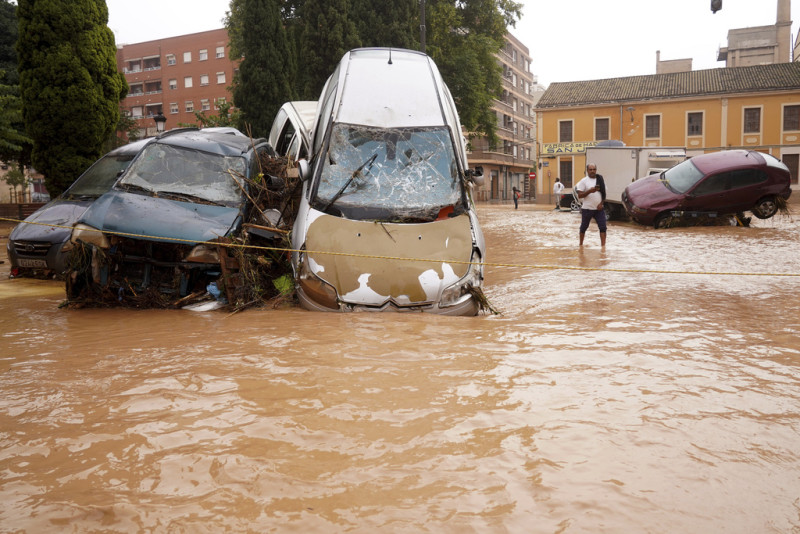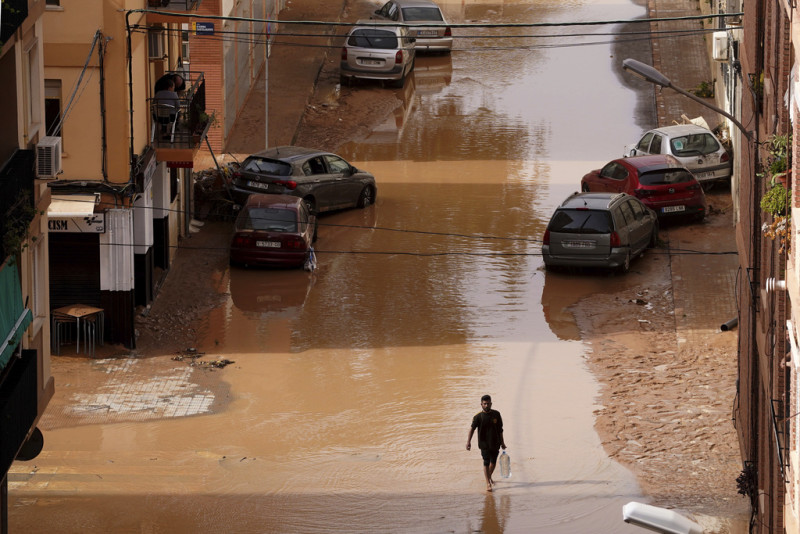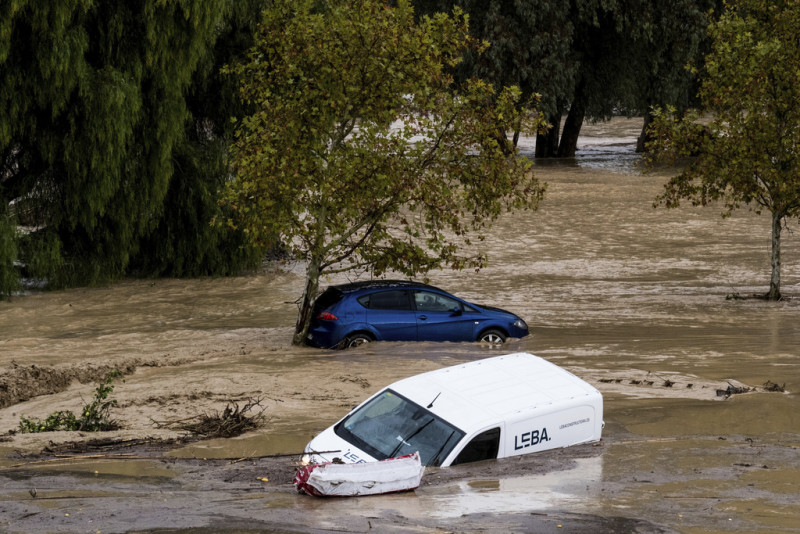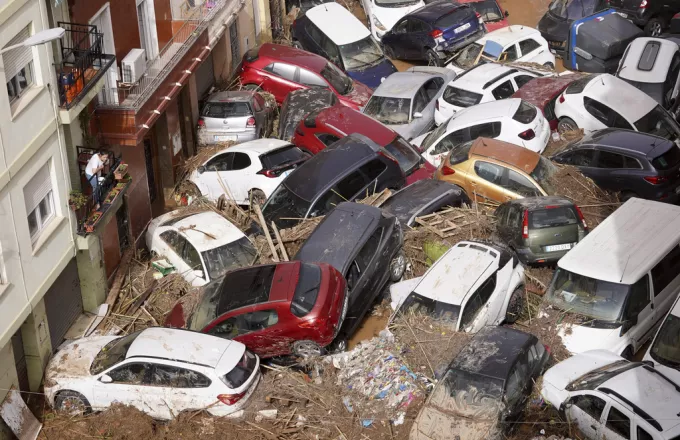It was the deadliest flooding to hit Spain in three decades. A year’s worth of rain fell in eight hours. Ground zero, the town of Paiporta.
By Athena Papakosta
“I heard strange sounds coming from the side of the road. When I looked out the window I saw that the road had turned into a river. I couldn’t believe my eyes. It wasn’t raining.” This is one of the testimonies of all those who saw up close the fury of nature submerging the region of Valencia in water and mud.
Residents in southeastern Spain described how the water seemed to move like a tsunami, sweeping away everything in its path. It was the deadliest flooding to hit Spain in three decades. A year’s worth of rain fell in eight hours. Ground zero, the city of Paiporta which mourns at least 40 dead. The search for the missing – the exact number of which remains unknown – is still ongoing, while the number of victims continues to rise.
What went wrong? What was wrong? The carousel of mutual accusations has already begun to weave.
As it became known, the Civil Protection, whose teams and crews are operating in the affected areas, did not issue a warning until very late, specifically at 20:12, local Spanish time – eight hours after the first areas had already started to sink into mud, cars they are swept away by the rushing waters and citizens climb onto the roofs of cars and houses – or even grab hold of trees – to avoid being swept away. Ten hours earlier, Spain’s National Meteorological Service had issued a “highest alert” warning for the entire region of Valencia. Indicatively, the Spanish newspaper El Mundo writes, “the magnitude of the tragedy raises the question of whether residents were notified too late. Civil Protection issued warnings when cities were already flooded.”
At the same time, Social Media has been filled with messages from citizens calling on the local authorities, as well as the Spanish government, to respond because there was absolutely no early warning and absolutely no preparation. “People died because of the incompetence of those in charge,” a lawyer wrote in a post, describing the situation in the Valencia region.
For its part, the Ministry of Ecological Transition underlined that the local authorities acted after the situation was now very difficult, while an official, who has not been named, emphasized that “it is the responsibility of the local governments to send warning messages to the mobile phones of the residents. Why were they delayed and, as a result, did citizens not limit their movements?”
The gaze of many is also focused on cutting costs which, as the British BBC network notes in its analysis, is emerging as a possible (co)culprit.
The president of the Valencia region, Carlos Monthon, was forced to defend his decision to suspend the region’s Emergency Unit (UVE) underlining that it was ineffective. The Emergency Unit of Valencia had been set up by the previous, left-wing administration and its operation was suspended a year before by the new, right-wing political “guard”. Its mission was crisis management and dealing with fires, floods and other extreme weather phenomena.
Others choose to also focus on the public positions of local officials before the disaster. In them they had emphasized that the rains would weaken by six in the afternoon on Tuesday. On the contrary, at that time the phenomenon was peaking in intensity.
Climate experts are not missing from the equation either. As they point out the climate crisis is here and it is taking lives. The consequences of this, they explain, are now visible, not only in Spain but also in Portugal, Italy and Greece. They add that the deadly floods and the prolonged dry season are two sides of the same coin.
Source :Skai
With a wealth of experience honed over 4+ years in journalism, I bring a seasoned voice to the world of news. Currently, I work as a freelance writer and editor, always seeking new opportunities to tell compelling stories in the field of world news.














